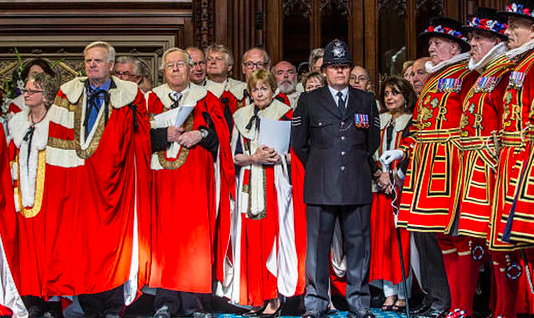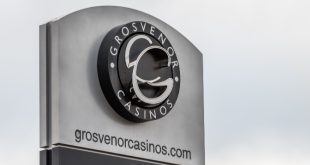Regulus Partners reviews a further week of political manoeuvres, as the upper echelons of British society weigh in on the future governance and oversight of UK gambling…
______________
UK: Regulation – Mo money, mo problems (by The Notorious PSG)
The row over who should administer industry contributions for gambling harm research, prevention and treatment services is arguably the most unnecessary (and for this reason the most lamentable) misstep in a series of spasmodic industry and political responses to pressure for reform in recent years.
The decision last summer of the five largest licensees in Great Britain (bet365, Flutter, GVC, The Stars Group and William Hill) to stump up £100m over four years for treatment services (as part of a wider and graduated commitment to fund research, prevention and treatment to the tune of £60m a year) ought to have been unequivocally positive. Instead, the decision (announced last week) to commit the funds into the care of GambleAware has created a parliamentary brouhaha which seems likely to run and run.
At the heart of it all is the figure of Lord Chadlington – a man with a curious relationship with gambling. As the PR man and lobbyist Peter Selwyn Gummer, he counted gambling organisations among his clients; but in recent years he has reinvented himself as a parliamentary interrogator of gambling policy.
Chadlington appears to have been heavily involved in persuading the so-called ‘Big Five’ to largesse and through his charity, Action Against Gambling Harms (AAGH!) had anticipated a central role in how it would be distributed.
This week, newspaper columnists and researchers have condemned the decision to accord this role instead to GambleAware; yet this is undoubtedly the better of the two options that appear to have been considered. Some have suggested that GambleAware is not sufficiently independent to be trusted with such large amounts of money; but – after 18 years of operation under various guises – it does have the advantage of significant experience and an established infrastructure. By contrast, AAGH! has only been registered as a charity since February (its registration page refers to tackling “gambling addition” – whatever that may be) and is still recruiting for a chief executive and chair. In its desperation to appear independent it has adopted the bizarre rule that any industry endorsement would bar charities and other harm prevention organisations from receiving funds (despite the fact that AAGH! appears to owe its own existence in part to industry endorsement).
In a toss-up between AAGH! and GambleAware, the BGC (which fronted the announcement) has almost certainly made the right decision. Yet those who question why this was allowed to become a binary decision (Chadlington or GambleAware) also have a point. The Big Five commitment represents a substantial increase in funds and therefore necessitates heightened governance. The fact that GambleAware has hardly covered itself in glory in recent years (principally the result of advocacy and campaigning, which rarely sit well with independent commissioning) does not help.
Other factors contributing to the mess include the Gambling Commission’s approved list of funding recipients (which no-one really seems to understand) and the lack of clarity on the funding model for the 14 new NHS clinics. After all the politicking, campaigning and cosy back-room chats – and despite the significant funding commitments – we still do not have a clear understanding of what treatment services are required (over and above what the Gamcare network, Gordon Moody Association and NHS Clinics provide), who should deliver them and how much they will cost. It is little short of scandalous that this should be the case and illustrates a failing in political-regulatory leadership.
It seems unlikely that anyone will emerge with very much credit from this episode – including Lord Chadlington. This is a shame given the undoubted good intentions on all sides and the fact that – after all the shouting has died down – we can expect to see a substantial expansion in specialist treatment services for those with gambling disorder. And that really was the point of it all.
UK: in Parliament – enough is enough… we can’t go on!
This was the week when we had expected to see puffs of white smoke emerging from Lord Grade’s House of Lords Select Committee and the Commons Public Accounts Committee, both of which have been busily compiling reports on gambling and its regulation.
In the absence of these publications, it was left to Lord Kirkhope of Harrogate to interrogate the Government on plans to restrict TV and online advertising for gambling. “Enough is enough” crooned the noble peer (the disco harmonies of Donna Summer and Barbara Streisand perhaps pulsating through his Zoom feed). “We have been discussing gambling and its dangers, particularly to vulnerable people and particularly within the current lockdown, for a long time now”, he opened (failing to explain how gambling’s dangers during the lockdown might have been discussed for “a long time”); “yet we still seem to have an enormous amount of advertising of gambling on both television and radio and, in particular—with no restraint whatever, voluntary or otherwise—on the online systems.”
Responding for the Government, Baroness Barran countered that in fact measures had been taken to restrict broadcast advertising and that the exposure of children to gambling advertisements had declined; but this did little to quell the anxiety of Lord Kirkhope, who suggested that it may be time to return responsibility for gambling oversight to the Home Office. Given the anarchic summer that the country already faces, it is unlikely that this suggestion will be greeted with any enthusiasm by Home Secretary, Pritt Patel.
Elsewhere, Alex Sobel (Lab, Leeds North West) asked why casinos had not been given the green light to reopen on 4th July; his neighbour Hilary Benn (Lab, Leeds Central) asked what plans the Government had to respond to last week’s report from the Gambling Related Harm All Party Parliamentary Group; and the Lord Bishop of St Albans stuck his episcopal oar into the debate on industry funding of gambling harm research, prevention and treatment.
UK casinos – in Chancery
Large swathes of the UK’s hospitality industry will be able to reopen from 4 July; but the exclusion of casinos from the Independence Day celebrations suggests a view from the Establishment that not all gambling businesses are created equal.
Decisions about what businesses should be allowed to open and when have been about as coherent as Franz Kafka on week-long stag in Magaluf. On 15th June, it was deemed safe to open licensed betting offices but not arcades; from 4 July, bingo clubs, pubs, AGCs and seaside amusements will be back up and trading but not casinos. Across Europe, casinos have been permitted to reopen so this appears to be a very British case of exceptionalism rather than anything particularly scientific (made all the more questionable given how relatively small the UK casino sector is).
Some in the industry have suggested it may all be just a load of balls. If cricket’s humble ‘cherry’ can be described as a “natural vector of disease” then perhaps the same might be true of the ball on the roulette wheel? This does not seem a particularly plausible explanation (although we observe that bingo clubs had the foresight to drop their balls in favour of the RNG some decades ago and will be permitted to reopen); but it is about as likely as any other theory proffered by the Government this week.
The barely disguised annoyance from Britain’s gambling operators is partly relative in origin. From the start of next month, all gambling activities in Great Britain will be back up and running with the sole exception of casinos. Of around 9,700 premises licensed by the Gambling Commission (as well as the thousands of pubs and clubs with gaming machines), all will be able to open with the exception of around 120 casinos (about 1% of all licensed gambling venues) and it is this sense of discrimination that irks. More practically, there is the fact that casino businesses – as was the case with arcade operators in early June – have exhausted further their dwindling cash reserves in preparing to reopen. Members of staff who had been looking forward to a return to work now face uncertainty once more.
The (heavily sanitised) die is cast and there is not much that casino operators can do except to swallow their disappointment and turn again to constructive engagement with the Government. This at least is a routine that the casino sector knows well, having spent the last decade or so navigating the labyrinth of government in Britain in vain pursuit of legislative coherence.
_______________










